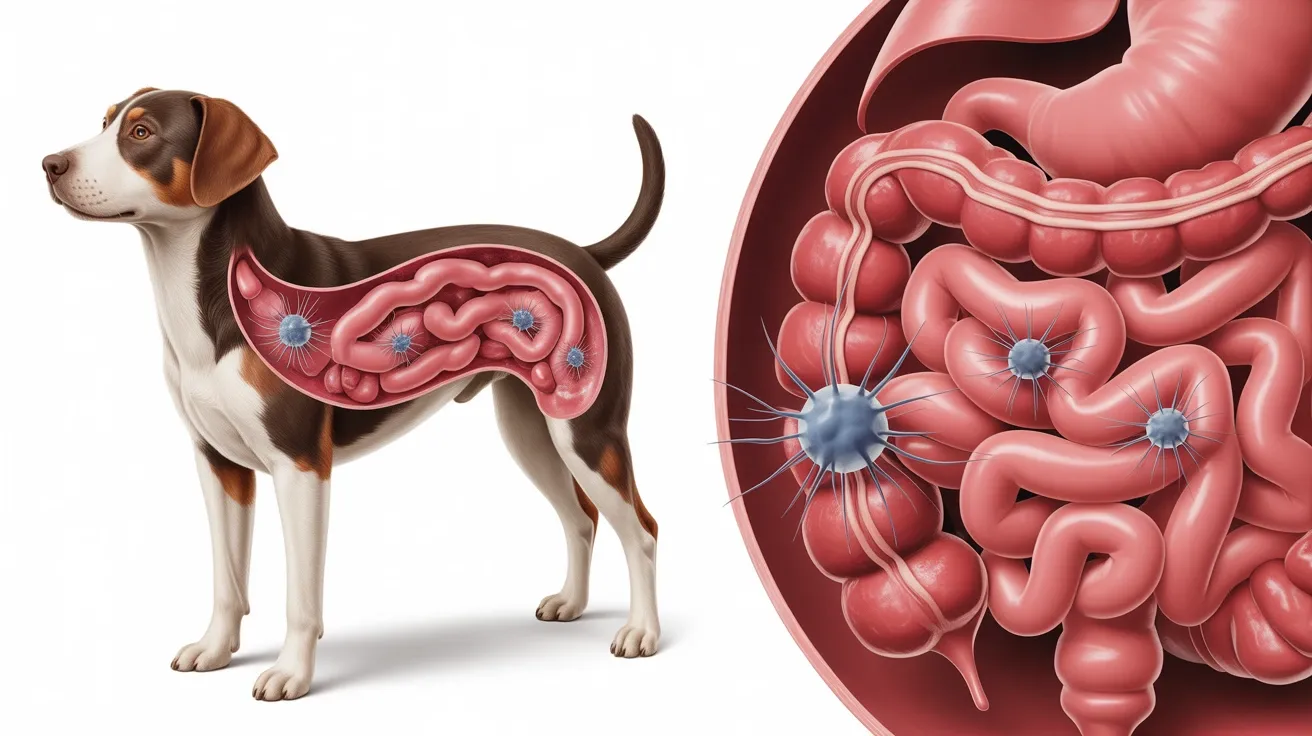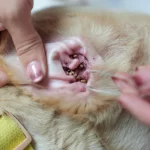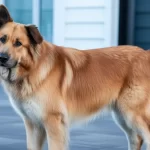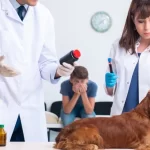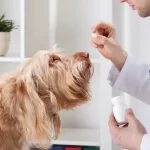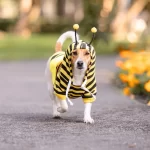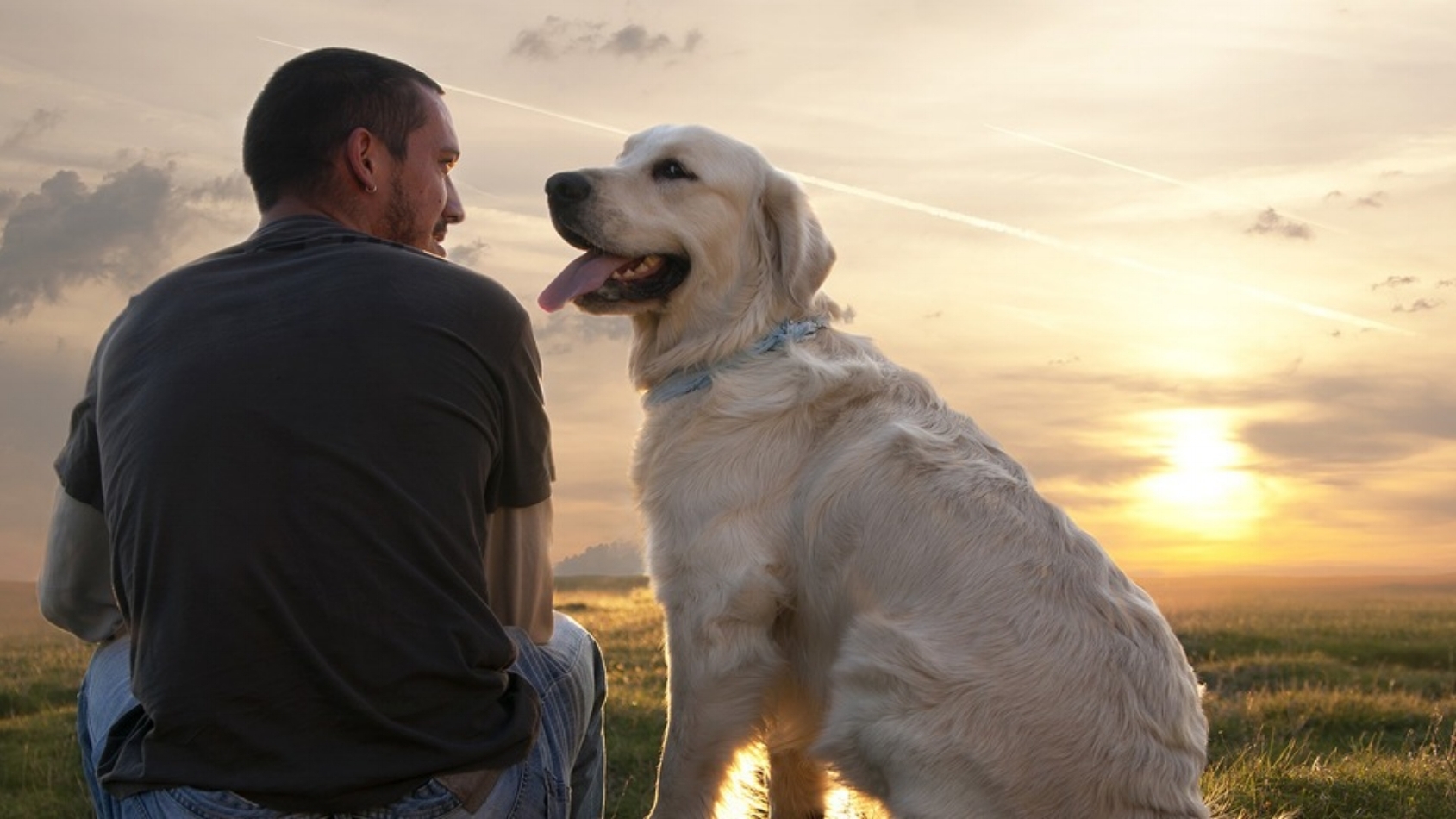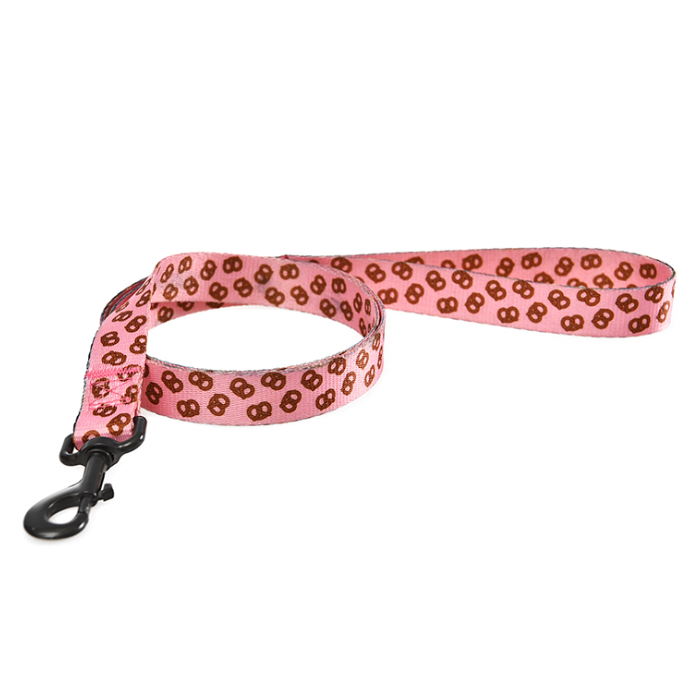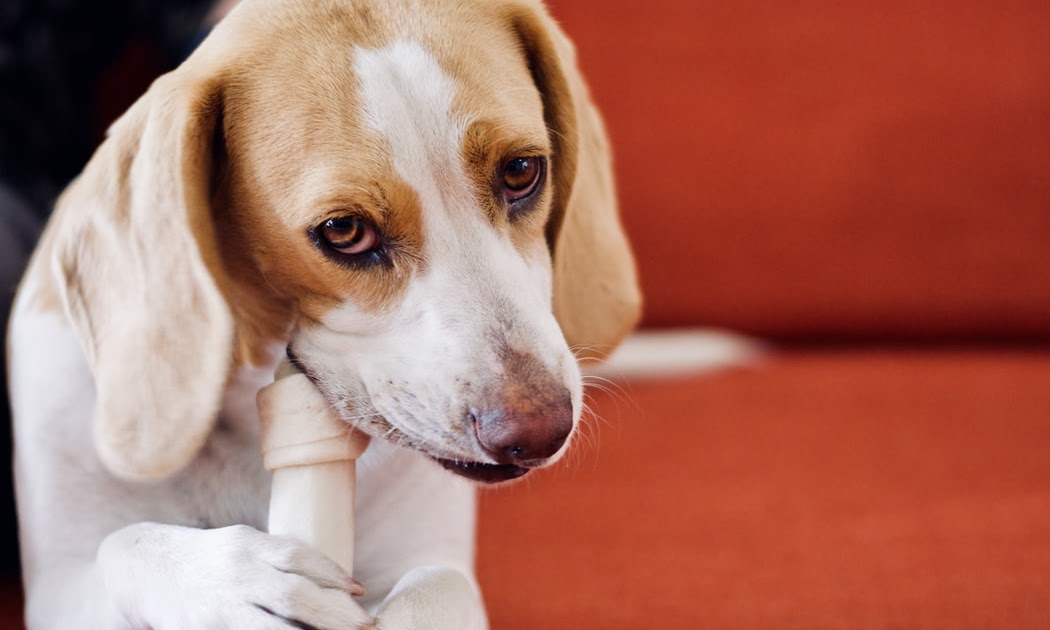This article follows the content structure, tone, and SEO/AEO strategy modeled after Dogs Naturally Magazine, written from the perspective of a Pet Expert Blogger who mixes professional insight with easy-to-understand explanations and light personal experience. It will naturally include a few exact LSI and long-tail keywords like how to treat giardia in dogs naturally, can humans get giardia from dogs, and giardia symptoms in dogs with diarrhea.
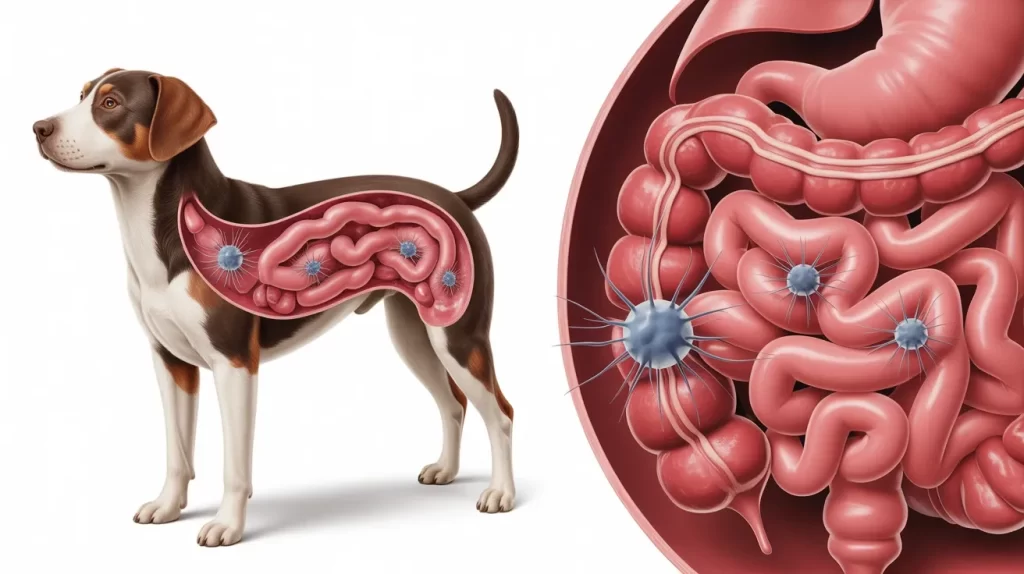
Content
Introduction
If your dog suddenly starts having loose stools, fatigue, or a gurgly tummy, you’re not alone. One of the most common — yet often overlooked — causes of digestive trouble in dogs is Giardia.
I remember when my rescue pup, Milo, first got diagnosed. His playful energy dipped, and I was puzzled until the vet mentioned giardiasis — a tricky intestinal parasite that’s more common than most pet parents realize.
So, what exactly is Giardia, and how can you keep your furry friend safe from it? Let’s dive into everything you need to know — from symptoms and causes to effective treatment options and natural remedies.
What Is Giardia in Dogs?
Giardia is a microscopic parasite that lives in your dog’s intestines and causes a condition called giardiasis. It spreads through cysts found in contaminated soil, food, or water — often from puddles, ponds, or shared water bowls at the park.
Once ingested, these cysts hatch in your dog’s small intestine and start reproducing, leading to digestive upset. This parasite is protozoal, meaning it’s not a worm — and dewormers won’t necessarily help unless specifically prescribed by your vet.
While healthy adult dogs might show mild or no symptoms, puppies and immunocompromised dogs are far more vulnerable.
What Causes Giardia in Dogs?
Dogs can pick up Giardia almost anywhere. Common causes include:
- Drinking from contaminated water sources (like puddles or creeks).
- Sniffing or eating feces from other infected dogs.
- Contact with unclean environments such as kennels, dog parks, or boarding facilities.
- Sharing toys, bowls, or grooming tools with infected animals.
In Milo’s case, he likely got Giardia during a hike — a reminder that even clean-looking water isn’t always safe.
Tip: Always carry your dog’s own water supply during walks and hikes.
Giardia Symptoms in Dogs with Diarrhea
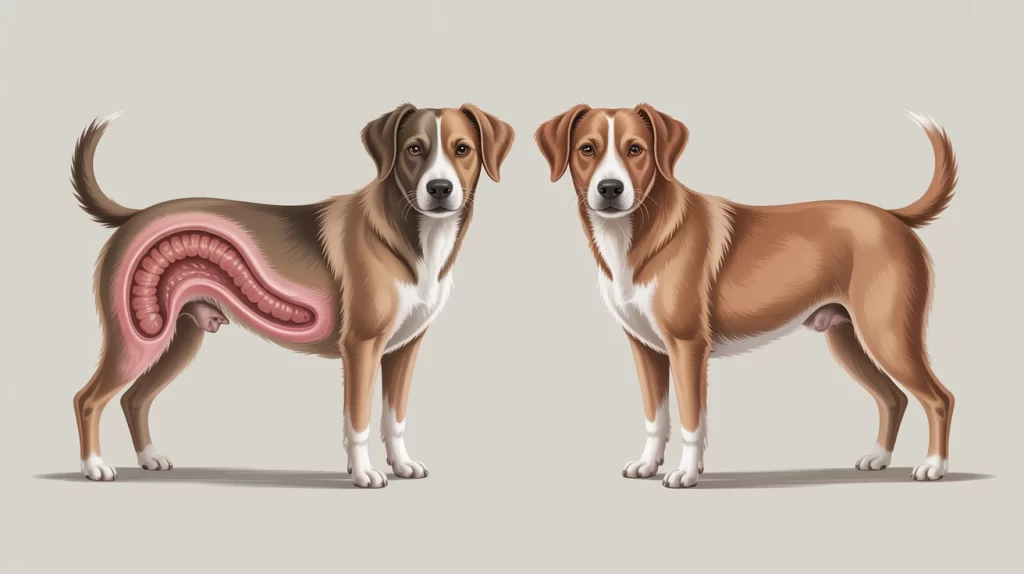
The most obvious sign of giardiasis is persistent or recurring diarrhea. But other symptoms can also appear, depending on your dog’s immune system. Watch out for:
- Soft, greasy, or foul-smelling stools
- Occasional vomiting
- Weight loss despite normal appetite
- Abdominal discomfort or bloating
- Lethargy or reduced activity
- Dehydration in severe cases
Some dogs act completely normal yet still shed infectious cysts — which means they can pass Giardia to others without looking sick.
Read More About: Pembroke Welsh Corgi
Can Humans Get Giardia from Dogs?
This is one of the most common concerns. Technically, yes, humans can get Giardia — but the specific strains affecting dogs and humans are usually different. That said, cross-species transmission is possible, especially for children or immunocompromised individuals.
Always wash your hands after cleaning up after your dog, and disinfect bedding or food bowls regularly. Simple hygiene can go a long way toward keeping everyone safe.
Diagnosing Giardia in Dogs
If your dog has ongoing diarrhea or digestive problems, visit your vet for a fecal test. Giardia isn’t always easy to detect in one test, so your vet might perform multiple exams or use a fecal antigen test for accurate results.
It’s also helpful to bring a fresh stool sample from the past 24 hours. Accurate diagnosis ensures your pup gets the right treatment instead of unnecessary antibiotics or dewormers.
How to Treat Giardia in Dogs
Most veterinarians prescribe medications such as metronidazole or fenbendazole, sometimes both, for 5–10 days. These help clear the parasite and reduce shedding.
However, treatment doesn’t stop there. Cleaning your dog’s environment is just as important. Wash bedding in hot water, disinfect feeding bowls, and bathe your dog to remove cysts from their coat.
If you prefer a holistic approach, you can also explore how to treat giardia in dogs naturally, which brings us to the next section.
How to Treat Giardia in Dogs Naturally
Natural remedies can complement vet-recommended care or serve as preventive support for mild cases (always consult your vet before starting).
Here are a few natural options that have helped many pet parents, including myself:
1. Oregon Grape Root
A natural antimicrobial herb that supports the liver and digestive tract. It can help your dog’s body fight off intestinal parasites like Giardia.
2. Garlic (in safe doses)
Despite its controversial reputation, small amounts of fresh garlic (prepared properly) can have antiparasitic effects. Always check dosage with your holistic vet before using.
3. Goldenseal
Known for its anti-inflammatory and antibacterial properties, goldenseal can be used in tincture form to support gut healing after infection.
4. Probiotics
Rebuilding gut flora is crucial after giardiasis. Choose a canine-specific probiotic with multiple strains to restore healthy bacteria and boost immunity.
Case Study: Milo’s Recovery from Giardia
When Milo was diagnosed, we followed a combined approach — the vet prescribed fenbendazole for seven days, while I supplemented his recovery with a bland diet of rice and boiled chicken, plus canine probiotics.
Within two weeks, his energy returned, his stool normalized, and repeat tests came back clear.
The biggest lesson? Consistency in hygiene and hydration. I stopped letting him drink from puddles and made routine cleaning a weekly habit. Since then, he’s stayed Giardia-free.
Preventing Giardia Infection in Dogs
Preventing Giardia is easier than treating it. Here’s how to protect your dog:
- Provide fresh, clean water at all times.
- Avoid letting your dog drink from ponds, puddles, or communal bowls.
- Clean up feces promptly and dispose of them properly.
- Wash your dog’s bedding, bowls, and toys regularly.
- Keep multiple dogs separated during treatment if one is infected.
A clean environment is your dog’s best defense against parasites.
Conclusion
Giardia in dogs can be frustrating, but with prompt care, hygiene, and prevention, it’s manageable.
Whether you choose medication, natural remedies, or a mix of both, the key is to stay consistent and observant.
Remember, dogs like Milo remind us that even minor tummy troubles can signal something deeper — and that our love, patience, and attention to detail are the best medicines of all.
Curious about which plants are safe for your pets? Learn more in our guide on Are Roses Toxic to Cats?
FAQs
How will I know if my dog has Giardia?
Watch for soft or greasy stools, weight loss, or lethargy. A vet fecal test confirms Giardia in dogs accurately.
How long does it take for Giardia to go away in dogs?
With treatment, Giardia in dogs usually clears in 1–2 weeks, but proper cleaning helps prevent reinfection.
How contagious is Giardia from dogs to humans?
Transmission is rare, but possible. Practice hygiene to reduce the risk of humans getting Giardia from dogs.
Can I touch my dog if he has Giardia?
Yes, but wash your hands afterward. Giardia in dogs can spread through contact with infected feces or fur.

Join Felipe Clark on a heartwarming journey through the world of pet adoption. He’s a true advocate for shelter animals, sharing stories that tug at the heartstrings and inspire adoption.

